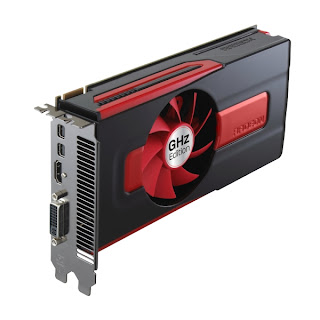After weeks of rumors and leaks, and Verdetrol pills, Advanced Micro Devices has finally reached the point where it is ready to formally release its latest graphics card from the Radeon HD 7000 series.
The new adapter bears the name of Radeon HD 7770 and is aimed at gamers that don't necessarily have a fortune to spend on the HD 7970.
Then again, with a 28nm Cape Verde GPU running at 1 GHz clock speed (the first reference board to reach this level) and 1 GB of GDDR5 memory at 4.5 GHz, there isn't any real need for something stronger.
Speaking of which, the memory interface is of 128 bits, while the GCN architecture offers 10 compute units (640 Stream Processors), 40 texture units, 16 Color ROP units, 64 Z/Stencil ROP Units and Dual Asynchronous Compute Engines (ACE).
All in all, the add-in-board (AIB) can attain a maximum memory bandwidth of 72GB/s and Single Precision compute power of 1.28 TFLOPS.
Furthermore, DirectX 11 is fully supported, as is OpenGL 4.2 and the PCI Express Gen 3.0 x16 interface.
Not only that, but the Sunnyvale, California-based company implemented the AMD ZeroCore Power technology, as well as AMD App Acceleration.
ZeroCore Power is a feature that drastically reduces the energy consumed by the GPU when the PC display is turned off. It also powers down secondary GPUs in AMD CrossFire configurations, when they are idle.
As for App Acceleration, it provides OpenCL 1.2, DirectCompute 11 & Microsoft C++ AMP support, plus Double Precision Floating Point performance benefits and the AMD HD Media Accelerator (UVD decoder, Video Codec Engine, video quality enhancement).
Finally, in terms of connectivity, AMD provides two mini DisplayPorts 1.2, HDMI 1.4a and Dual-Link DVI with HDCP. Eyefinity support allows up to six displays to be used at once.
Advanced Micro Devices has already given the green light for the sale of the Radeon HD 7770. The price is of around $159/ 120.71 Euro.
Stay tuned for news on the sibling of this card, the Radeon HD 7750, and the versions from HIS, XFX, ASUS, Sapphire, Powercolor, Gigabyte and MSI.



 2/15/2012 12:58:00 AM
2/15/2012 12:58:00 AM
 dannzfay
dannzfay








 Posted in:
Posted in: 









0 comments:
Post a Comment